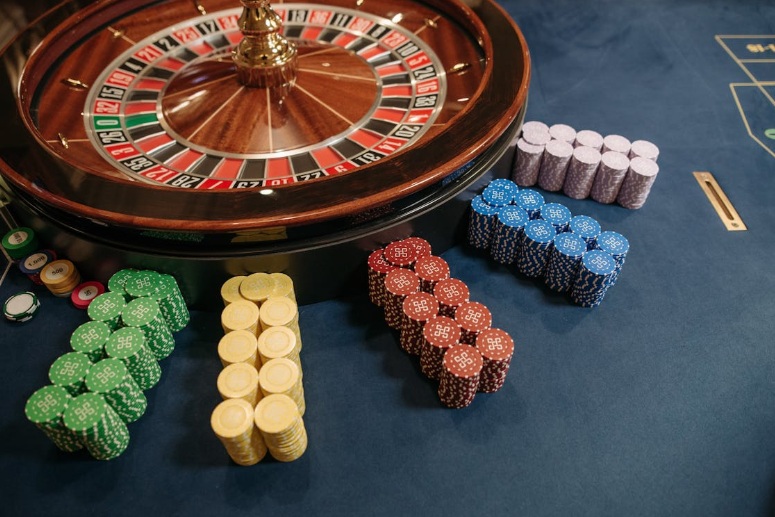
Responsible gambling tools are essential for the existence of iGaming as a hobby. Ever since online casinos became legal, the general public’s main concern has been how to make them safe. While regulatory requirements did help in this area, it was tools for responsible gambling that had a more practical use among the player base.
Of course, these neat features can’t take all the credit, since payment providers or digital banking also contributed a lot. Players are a lot more comfortable playing knowing they don’t need to send all of their personal info the moment they sign up. This is why no ID casino sites became a huge hit within the industry. The more lenient approach to KYC meant more trust, and it also streamlined the registration. Players could jump into action the moment they filled out the sign-up form and made their first deposit.
In case you are new to all this or haven’t had the chance to use the responsible gambling tools casino sites have to offer, stick around. We’ll do a crash course on how they work, and what makes them so useful.
What Is Responsible Gambling?
Playing responsibly requires you to be in a certain mindset. You need to view casino games as pure fun and entertainment, and the money that you make is just a positive outcome of that entertainment. It should never be seen as a means of generating revenue, and the money you wager should never be viewed as an investment.
However, because the stakes are real, it’s difficult to maintain this point of view. Sooner or later, players get frustrated and either try to recoup their losses. Alternatively, they experience a big win once and start spending recklessly in order to recreate that experience.
If the spending gets out of hand, you are already treading in dangerous territory. You start to deny how much you’ve lost overall and develop the common gambler’s fallacy:
- “My overall win-loss ratio is even.”
- “I am in full control and can quit whenever I want.”
- “The next big win is just around the corner.”
- “I can figure out the win patterns now.”
- “The machine is hot and it’s about to payout big.”
If you find yourself thinking along these lines, then it might be time to start using responsible gambling tools regularly. An even better solution is to start using them the moment you make an account.
Deposit and Loss Limits
This is a feature that you can typically find in user settings, once you log in. Just like its name suggests, you can set a deposit cap for a certain time frame. So if you set it at $50 per month, that’s how much you can deposit for that month, and it will reset at the start of the new month.
Loss limit works in a similar fashion, you set the cap on how much you can lose, and once you reach it, you can no longer play. Remember, you will have winning and losing games or rounds from time to time, but the loss limit will only calculate your losses. So even if you are ahead, the casino will deny you access to the games if the loss cap has been reached. This is a neat way to stop yourself from spending money you’ve won and to quit while you are ahead.
Reality Checks and Time Limits
As mentioned, the more you gamble, the more you are likely to start deluding yourself about your expenses. You might think you are ahead, or that you haven’t lost that much money, and then justify future play. With the Reality Check tool, you can’t do that, as it gives you a realistic picture. You’ll get the exact amount of money you lost so far, and how much you’ve gained. Once it puts things into perspective, you are more likely to regulate or adjust your spending.
Time Limit is also useful as it allows you to manage your play sessions. Regardless of whether you are winning or losing, too much time spent playing online isn’t that productive, and it only leads to developing unhealthy habits. So, you can limit your daily sessions and get automatically logged out once they expire.
Self-Exclusion and Cool-Off Periods
More drastic tools for responsible gambling are self-exclusion and time-out. This is incredibly useful for those who want to reduce the time spent gambling or who want to quit. Cool-off periods typically last for several weeks or months, and research has shown that this method can be useful. Over 3000 UK players applied for a time out in 2021-2022, and those who spent 90 days without gambling didn’t start again, even after the time out expired. That said, the majority of those who opted for a 38-day break returned to gambling immediately after the time out was over.
Self-exclusion is practically a necessity if you are a problem gambler who spends most of his or her day thinking about casino games. Self-exclusion registers allow you to enter your personal data and to apply for an exclusion period that lasts a few years. All licensed casinos are then obligated to deny you service. Depending on the country, this exclusion can or cannot be canceled, and even when you can suspend it, you must provide proof that you’ve spoken to a medical professional.
Blocking Software and Gambling Filters
In countries where self-exclusion registers don’t exist, you can use blocking software to achieve similar results. You choose what types of gambling sites they need to block. These are tools that are difficult to bypass once you install them, and they will do as you instruct them during setup.
Where to Get Professional Help
In developed countries, professional help and support groups are readily available. In fact, casino sites are obligated to promote responsible gambling tools and habits, and often have links that lead to these help centers. Some examples include the National Council on Problem Gambling, GambleAware, and GamCare.



